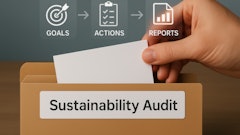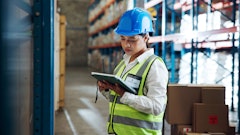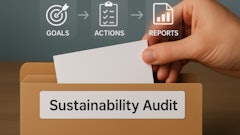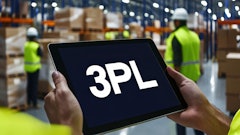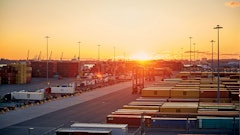
Supply chain professionals find themselves at a crossroads in 2021. A job that was largely undervalued was suddenly shoved to the forefront as a global pandemic, chip shortages and even a stuck container ship highlighted the value chain’s place as a vital business enabler. Historically, there has been no better time for supply chain pros to leverage their influence and fundamentally rethink our everyday business operations and begin moving towards a more resilient and sustainable future.
Sustainability has long been discussed in industry circles, but too seldom enacted, especially considering that a report from McKinsey found 90% of companies’ impacts on the environment came from supply chains. With executives and customers each aligned on the urgency in creating sustainable practices, it’s never been a better time to break through the cost-conscious hand-wringing that slowed down green initiatives in the past. The public is on your side, and supply chain professionals must enact long-term strategies that support a more sustainable world.
Understand where the starting line is
Before a business can implement a sustainability program, the organization must have an overview of the current state of its environmental impact. Context and transparency is the first step towards formulating short and long-term objectives and driving positive, sustained change.
For organizations that may not know where to start, there are many great organizations that can help articulate your impact today, and looking forward, provide guidance to shape supply chain and manufacturing professionals’ sustainability plans across industries. These regulatory bodies offer tools, procedures and guidelines that help global enterprises establish and measure their sustainability program’s efficacy and progress. Credible third-party sustainability organizations also create alignment and momentum within industries.
Sustainability goals must be clear and measurable
Goals are one of the trickiest components of sustainability efforts. Too aggressive, and the business won’t reach them. Low-hanging goals also fly in the face of the whole purpose of sustainability, namely, to create meaningful change in the world. Most organizations go with the latter, as exemplified by a Business for Social Responsibility poll that found only 22 of the 101 sustainability professionals surveyed thought their supply chains' sustainability integration was effective.
Sustainability is a broad term that encompasses environmental, social and even governance concerns, among other areas, so supply chain professionals need to set specific goals for their organization. The quickest way to lose momentum for a sustainability program is to go too big, too quickly. It's not realistic or reasonable to expect an organization to have a fully-defined sustainability platform that solves all of the world's ills immediately.
Businesses should align sustainability initiatives with their business objectives and it’s encouraged to publicly set measurable goals. Supply chain professionals should build in “small wins” along the path toward a larger plan that their team can celebrate, even if it's a regional beta test case. As the group moves swiftly towards their goals, that momentum helps expand and evolve their program naturally.
Don’t underestimate your organization’s reach
The supply chain has become a tightly integrated system with nodes all around the world. The scale of this interconnected system is why companies need to incorporate their supplier and distributor networks into their sustainability initiatives.
Suppliers play a crucial role in a manufacturers’ sustainability journey. Make sure your suppliers understand that their partnership is needed not only to design and manufacture products that improve people’s lives, but also to contribute to a cleaner, healthier future. To help suppliers start developing their respective goals, provide training for disclosing performance and shared best practices gathered when setting your own emission reduction targets.
All companies are encouraged to look into how they integrate sustainability into their supply chain operations. Just start. There are no wrong answers or risks involved with trying to make a difference in the world. Consumers aren’t expecting perfection from sustainability programs; they just want to see action. Environmentally responsible supply chain practices are now expected and valued by critical stakeholders. Supply chain pros should challenge themselves to work on a passion project or goal that contributes positively to the environment and serves as a proof point to a more significant undertaking. Together, we can become agents of change.










